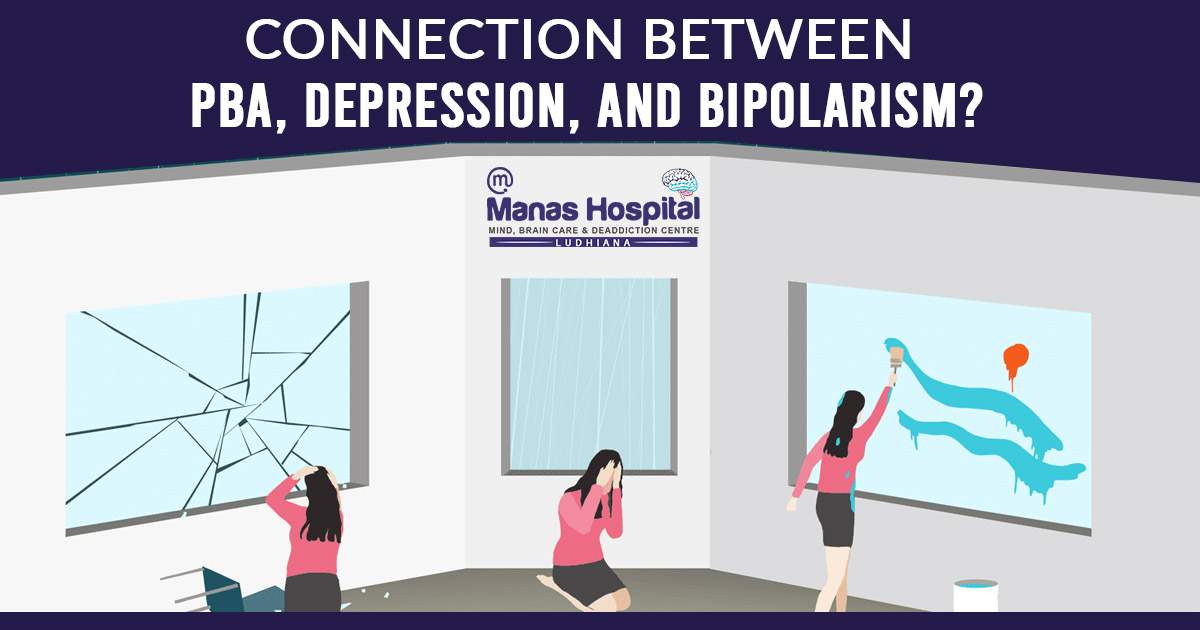
What is the connection between PBA, Depression, and Bipolarism?
When you visit a psychiatrist in Ludhiana because you have no apparent reason to cry suddenly. The specialist examines you well, and then reveals that you are suffering from a major depressive disorder and prescribes drugs. The crying episodes of the patient are reduced, but a problem remains. Depression may occur due to drug addiction, so you need to go with deaddiction therapy.
Another patient visits his specialist as he is suffering from sudden tears and laughter that are unanswered. It can be diagnosed with and treated as a bipolar disorder.
In both cases, the diagnosis may be correct, but the cause may be a pseudobulbar disease, which can cause this explosion of unchecked crying and less laughing. (The condition may be labeled repetitive mental speech dysfunction with various terms, most recently.)
What Is PBA?
It is the disease that may arise in people with amyotrophic lateral sclerosis (ALS), Multiple Sclerosis (MS), Alzheimer’s Disease, and Parkinson’s Disease and occur due to certain neurologic disorders, which is recognized for pseudoBulbar Affect or activity.
-
Traumatic brain trauma from stroke or accident may often cause PBA. Often PBA signs show a brain injury concealed from the eyes.
-
While it was described more than one hundred years ago, the disease is still very often misdiagnosed.
-
It is partially because it can trigger stress and other signs of psychotic and depressive disorder. People with PBA conditions are most sometimes diagnosed with depression and psychotic effects, such as multiple sclerosis. And ultimately, mood therapies aim to reduce PBA symptoms but are still not adequate to help the patient feel comfortable again.
-
A recent survey showed that 51% of PBA individuals indicated having been spending little time with friends and relatives, with 57% of them chatting on the phone little time. This has an important influence on the normal existence and operations of this disorder.
PBA and mood disorders connection
The main difference between pseudobulbar and other mental diseases, such as depression and bipolar, is the fact that there is no reason for crying, laughing, and/or anger with PBA, which lasts a very short time and can happen many times during a day. Again, one can understand that depression can be assessed if a patient still has cried, especially as one analysis has shown that approximately 90 percent of PBA patients do have severe depressive symptoms.
That is a key occurrence of depression and bipolar illness, and in PBA it occurs when people are fearful of social situations. Consider laughing at the funeral or screaming at a business meeting in the midst of it. These incidents can effectively keep a person from suffering insufficient and upsetting symptoms.
Many signs of depressive periods, including variations in appetite and unwanted feelings of anxiety or remorse, are not correlated with PBA.






